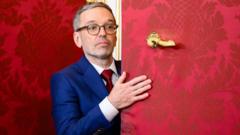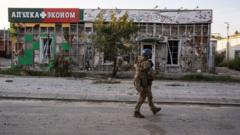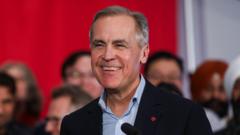In a significant political development, Austrian President Alexander Van der Bellen has assigned Herbert Kickl, leader of the far-right Freedom Party (FPO), with the task of forming a coalition government. This marks a historical moment, as the Freedom Party aims to become the leading force in Austria's government for the first time, following its first-place finish in the September elections with approximately 29% of the vote. Despite its electoral success, the FPO was previously sidelined amidst concerns from other political leaders regarding Kickl's suitability for the role and the party's Eurosceptic stance.
Austrians Brace for Potential Shift as Freedom Party Aims to Form Coalition Government

Austrians Brace for Potential Shift as Freedom Party Aims to Form Coalition Government
Austria's president has tasked the far-right Freedom Party with leading coalition talks for the first time in history, amidst a backdrop of conflicting party dynamics and public sentiment.
The recent phase of negotiations began after the conservative People's Party (OVP), which came second in the elections at 26%, failed in its coalition attempts, leading to the resignation of Chancellor Karl Nehammer. The OVP's new leader, Christian Stocker, has now signaled a willingness to negotiate with the FPO, setting the stage for potential collaboration. This change in dynamics represents a significant reversal for President Van der Bellen, a former Green Party leader, who has historically expressed reservations regarding the Freedom Party’s leadership.
While the Freedom Party and OVP share common ground on issues like migration, they clash on EU-related matters, particularly the FPO's opposition to aiding Ukraine amid its conflict with Russia. Though the coalition talks typically span two to three months, they may accelerate based on the growing public support for the FPO observed in recent polls. However, should these negotiations falter, Austria may face a snap election, raising further questions about the nation's political future.
As the landscape shifts, the implications of a Freedom Party-led government could alter Austria's stance on EU relations and migration policies, compelling citizens and political observers alike to monitor the evolving situation closely.
While the Freedom Party and OVP share common ground on issues like migration, they clash on EU-related matters, particularly the FPO's opposition to aiding Ukraine amid its conflict with Russia. Though the coalition talks typically span two to three months, they may accelerate based on the growing public support for the FPO observed in recent polls. However, should these negotiations falter, Austria may face a snap election, raising further questions about the nation's political future.
As the landscape shifts, the implications of a Freedom Party-led government could alter Austria's stance on EU relations and migration policies, compelling citizens and political observers alike to monitor the evolving situation closely.






















